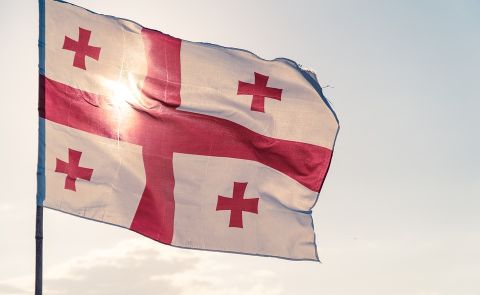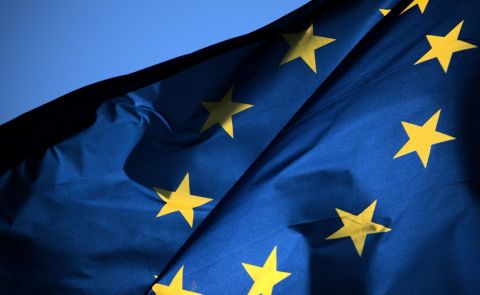
Angela Merkel's energy diplomacy in Azerbaijan
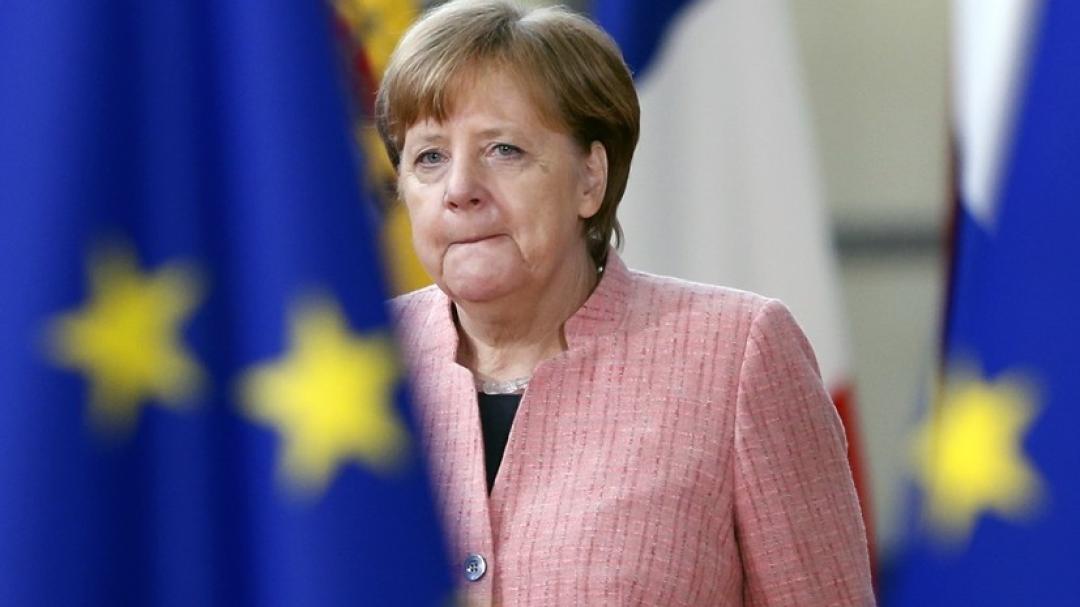
On August 25, German Chancellor Angela Merkel will visit Azerbaijan as part of her South Caucasus tour. The Caucasus republic, rich in oil and gas reserves, has about 10 million inhabitants and is about the size of Austria. Merkel has never been to Azerbaijan before, so the Azerbaijani media often writes about a "historic visit" by the German Chancellor. Azerbaijani President Ilham Aliyev last visited Berlin on a working visit in 2016 where he met with Angela Merkel and opened the German-Azerbaijani Economic Forum.
Financial figures
In 2017, Azerbaijan accounted for 66% of the total trade between Germany and the South Caucasus (Armenia, Georgia, Azerbaijan). In 2017, the state exported goods valued at 1 billion EUR to the Federal Republic of Germany and thus became the eighth-largest oil supplier for Germany. In return, Azerbaijan last year imported goods from Germany with a total value of 352 million EUR - especially the traditional German export rackets: machinery, motor vehicles and motor vehicle parts, chemical products, electrical appliances and equipment.
More than 200 German companies are active in Azerbaijan. However, the Caucasus country traditionally has its closest economic and political relations in Europe to Britain. Investments of British companies into the Azerbaijani economy amount to more than 27 billion USD. By comparison, German direct investment in Azerbaijan totaled 739 million EUR between 1993 and 2017.
Cooperation in the energy sector
The German-Azerbaijani trade alone should hardly be the focus of the Chancellor’s visit to Baku - the Azerbaijani market would be too small. Of much greater importance are planned gas deliveries from the largest Azerbaijani gas field "Shah-Denis" (gas reserves are estimated at 1.2 trillion cubic meters) to Europe. As the British "Financial Times" reported, citing an unnamed senior German diplomat, Merkel will explore ways in Baku to secure higher supplies of natural gas from the Caspian region for Europe. The federal government wants to make this possible, among other things with the help of a guarantee in the billions.
A federal guarantee for a credit of a German bank over 1.5 billion US dollar (1.2 billion euro) to the Azerbaijani state enterprise CJSC is planned. The German energy supplier E.on had already secured a large amount of gas supplies from the resource-rich country on the Caspian Sea years ago. According to this, from December 20 to 2044, the E.ON spin-off Uniper is to receive 1.45 billion cubic meters of gas per year via the so-called Southern Gas Corridor.
The necessary infrastructure has been extensively expanded in recent years. Together with Turkey, Azerbaijan built the Trans-Atlantic Pipeline (TANAP), which runs through the Turkish territory to the Greek border. As soon as the Trans-Adriatic Pipeline (TAP) is put into service, natural gas from Azerbaijan is to be sold to Europe after the planning of the Shah Denis Consortium. According to Margaratis Schinas, the spokesman for the EU Commission, the EU expects to receive about 10 billion cubic meters of gas from Azerbaijan every year from 2019-2020 through the TAP. In the next phases of the project, the capacity of the pipeline could be significantly increased. The 4.5 billion dollar project is part of the Southern Gas Corridor and has recently received explicit support from US President Donald Trump.
Access to the Caspian gas reserves
Recent developments in the legal status of the Caspian Sea are also essential in the context of European energy policy. The Convention on the Legal Status of the Caspian Sea, signed in the Kazakh coastal town of Aktau by the five Caspian states (Russia, Azerbaijan, Iran, Turkmenistan and Kazakhstan), makes it possible to build the Trans-Caspian Pipeline, which has the potential to transport large volumes of natural gas from Turkmenistan (up to 30 billion cubic meters annually) could be delivered to Azerbaijan. From Azerbaijan, Turkmen gas could then be brought to the European market through the TANAP and TAP pipelines. In view of the expected US sanctions against the Russian project "Nordstream 2", the Trans-Caspian Pipeline is gaining importance as an alternative route. So far, the project has always been blocked by Russia and Iran. By signing the convention, Turkmenistan and Azerbaijan are allowed to decide on the construction of the pipeline on their own, as it eventually passes through its territory. However, the Kremlin still has room to delay the project because of possible environmental consequences which would then affect all treaty states.
European integration
Unlike neighboring Georgia, Azerbaijan is rather cautious in its policy toward the EU and limits its cooperation mostly to business and energy. Baku does not aspire to EU or NATO membership, although the country participates in the Eastern Partnership and provides both logistical and military support for the NATO mission in Afghanistan. In 2011, Azerbaijan joined the Non-Aligned Movement to reaffirm its neutral geopolitical status. On 11 July 2018, Azerbaijan and the EU set priorities for their partnership. These are institutional strengthening and good governance; Economic development and market opportunities; Connectivity, energy efficiency, environmental and climate protection; Mobility and personal contacts.
Germany has contributed to the development of the country with its development cooperation of more than EUR 600 million since Azerbaijan gained independence. On behalf of the Federal Ministry for Economic Cooperation and Development (BMZ), GIZ has been supporting Azerbaijan since 1995 in the transformation process towards a more market oriented economy. Interest in the German language remains high. German is the most important foreign language after English and Russian. According to the Ministry of Education, there are almost 26,000 learners of German at around 200 schools.
For many Azerbaijanis, Germany today is an attractive labor market, especially for highly qualified professionals. For example, more than 600 Azerbaijani doctors are currently employed in German hospitals. In addition, more and more students from Azerbaijan are choosing to study in Germany: in the winter semester 2016/2017, more than 800 young Azerbaijanis studied at German universities, whereas in the 90s there were only a few dozen. The DAAD and the Goethe-Institute operate their offices in Baku. The activity of the German political foundations in Azerbaijan, however, was discontinued several years ago, causing discontent on the German side. In negotiations with Azerbaijan's political leadership, the federal government also regularly addresses human rights deficits in the Caucasus republic. In particular, the criticism was directed at the detention of the leader of the opposition party "ReAl" ("Republican Alternative"), Ilgar Mammadov. After five years in prison, Mammadov was released on 13 August 2018, shortly before the visit of the Federal Chancellor.
Nagorno-Karabakh conflict as a security risk
The biggest security challenge for the country is the Nagorno-Karabakh conflict with neighboring Armenia and the associated problem of the approximately 1 million refugees and internally displaced persons in the country. Nagorno-Karabakh and the surrounding seven areas, which make up a fifth of Azerbaijan's territory, belong to Azerbaijan under international law, but have been occupied by Armenian troops since the war with Armenia in the 1990s. The Minsk Group of the OSCE, with Germany being a member, has mediated under the chairmanship of Russia, France and the USA since 1994 in the search for a diplomatic solution. After the "Velvet Revolution" in Armenia in the spring of 2018, there were no more negotiations at the highest level.
A possible escalation of violence in Nagorno-Karabakh would have unpredictable consequences and therefore poses potential dangers to Western energy interests in the region. A new war could also increase migration to Europe from across the region. In this sense, it would be in the German interest to work more closely together with France for a peaceful solution to the conflict. Merkel's Caucasus trip offers a good opportunity for this: One day before her arrival in Baku, the Chancellor will meet the Armenian Prime Minister, Nikol Paschinjan, in the Armenian capital Yerevan.
Siehe auch

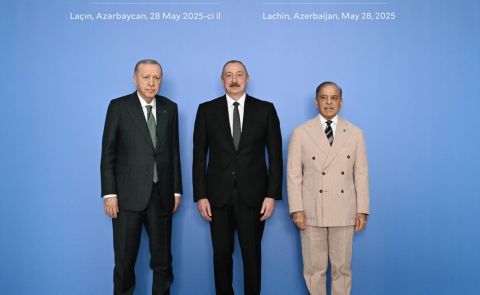
Aserbaidschan, die Türkei und Pakistan betonen auf dem Gipfeltreffen in Lachin ihre wachsende strategische Zusammenarbeit
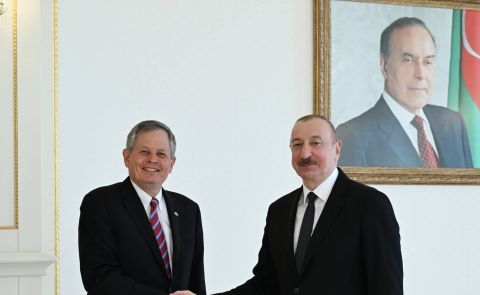
Ilham Alijew trifft US-Senator Steve Daines zur Erörterung der Stärkung der Beziehungen zwischen Aserbaidschan und den USA
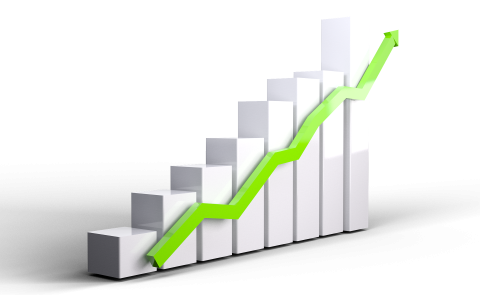
Dmitry Volvach Reports 60% Growth in Azerbaijan-EAEU Trade Over Three Years
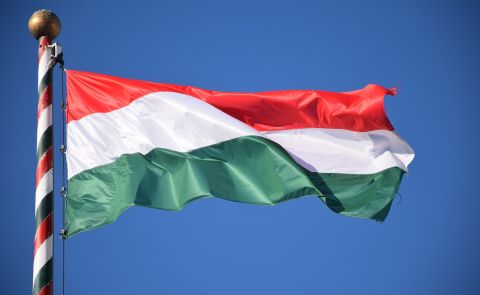
Ungarn besteht auf gleicher EU-Finanzierung für Armenien und Aserbaidschan
